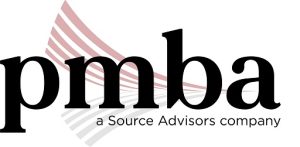Who’s Responsible for Getting Sales Tax Right?
Indirect taxes such as Sales Tax, Goods and Services Tax (GST), and Value Added Tax (VAT) are generally a low priority for corporate procurement teams. Unfortunately, the same reigns true for corporate tax groups. This neglect leaves a gaping hole in the spend category representing an average of 8% on each taxable transaction.
Depending on the organization, sales tax compliance responsibilities can rest under finance, accounting, AP, or even procurement. However, the consequences of non-compliance end up on everyone’s shoulders!
Discover how corporate procurement and tax departments (with the right technology!) can team together to identify large refunds and mitigate future indirect tax risks.
The Supreme Court Ruling That Threw Gas On The Fire
Before June 2018, sales tax nexus (i.e., a business connection to a state) occurred based on a seller’s physical presence. During this time, less than 15% of vendors had a requirement to charge sales tax outside of this rule. Consequently, some vendor invoices had no sales tax, and companies (buyers) only focused on self-accruing sales & use tax when required.
However, in June 2018, the Wayfair v. South Dakota ruling added an economic standard to the mix (“economic nexus”). Over the past 24 months, all but two states have adopted sales tax collection criteria for sellers that create substantial nexus in their jurisdictions, even if they have no physical presence in the region.
Subsequently, the percentage of vendors charging sales tax across multiple states has increased at a rate of 10% per quarter. Based on PMBA’s internal client data, over 22% of vendors charge sales tax on their invoices, and this number is expected to grow to 50% over the next 3 – 5 years. This oncoming tsunami of sales tax collection will have a massive impact on procurement budgets.
Indirect Taxes Challenges that Businesses Face
The landscape of indirect tax is exceptionally complicated. In the United States alone, there are over 5,000 taxing jurisdictions that apply various rates and sales tax rules. As a result, companies overpay and underpay millions in indirect taxes every year – often without knowing.
This lack of understanding can have severe consequences on a business’s cash flow, cause major headaches to correct, and even negatively impact relationships with suppliers or customers.
Procurement is often at the forefront of sales tax audit risk. Whether or not the responsibility falls directly on procurement to ensure sales & use tax compliance, it is crucial to verify that the tax processes are properly established throughout the purchasing process.
How Procurement Can Help
Understanding why procurement has some level of responsibility is the first step. Simply put, procurement is tasked to monitor any potential risks and find cost savings throughout the purchasing process. As the system operators of P2P processes, procurement is at the frontline of a company’s spend activity and subsequently the first group with visibility on sales tax applications. That is why procurement is uniquely positioned to identify and prevent potential leakages.
Having a procurement department with a basic understanding of your company’s sales tax obligations can save time and money in the future. However, the buck doesn’t stop there. Collaboration with the tax department is absolutely necessary to ensure accurate data, address tax compliance issues, mend any possible discrepancies (obtain refunds, update tax codes, etc.), or even integrate technology solutions.
Although, when a company does not have the bandwidth or resources to track and comply with an ever-changing tax landscape, outside tax specialists are brought in to help.
The Benefits of Using Sales Tax Experts
Depending on the resources available, tackling a sales tax project in-house can result in hundreds of wasted hours, missed refund opportunities, and possible audit exposure.
By leveraging the right technology and experts, it’s possible to avoid overpayments before they happen AND detect underpayments before an audit.
The key benefits of utilizing an expert include:
Internal Time and Resources Saved
At PMBA, we do the heavy lifting by analyzing purchase data, identifying all refund opportunities, flagging possible underpayments, filing claims, and working directly with the state and vendors to retain reimbursements. The ROI for our clients always outweighs the time!
Efficiency, Expertise, and Reduced Errors
At PMBA, our experts stay informed and have a deep understanding of the most recent multistate sales tax rules and exemptions. Using our proprietary data software, we can process invoices and analyze data quickly for a more thorough review of every possible transaction with sales and use tax exemptions (or underpayments!)
Increased Chances of Success
With over 20 years of experience, our recovery engineers understand the nuances of working with states and vendors to capture maximum results. Our meticulous attention to detail often allows us to uncover additional refunds that larger firms miss while also identifying potential or unknown audit risks.
